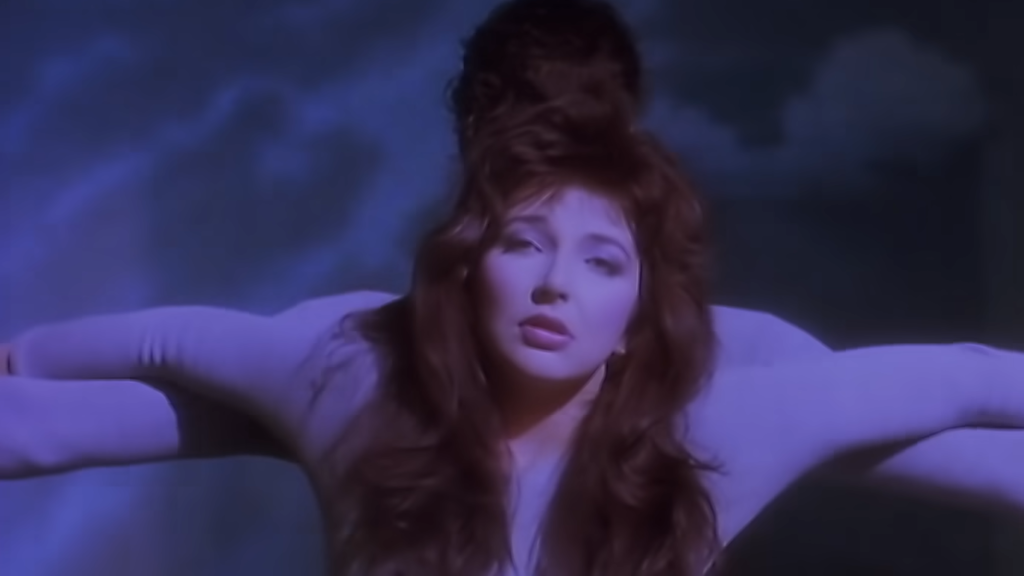In the ever-evolving landscape of music and its fandoms, the concept of gatekeeping has emerged as a poignant topic of discussion. Traditionally, gatekeeping refers to the practice where individuals or groups control, and often restrict, access to a community or identity, deciding who does or does not belong. In the realm of music fandoms, this manifests as long-time fans asserting authority over who can be considered a “true” fan of an artist or genre. These fans often set unwritten criteria that new fans must meet to be accepted into the fold, ranging from knowledge of obscure song lyrics to participation in certain fandom activities.
The relevance of exploring gatekeeping in music communities has spiked particularly in today’s digital age where social media platforms and streaming services can catapult artists into the spotlight overnight. Viral moments, whether they stem from a meme, a movie inclusion, or a celebrity endorsement, can introduce swathes of new listeners to niche or previously less mainstream artists.
This gatekeeping not only shapes the social structure of fan communities but also impacts the cultural conversation around music and accessibility. As we delve deeper into the intricacies of gatekeeping, we uncover not just a struggle over music trivia but a broader battle over who controls the narrative of musical legacy and belonging. Understanding this dynamic is crucial for both fans and those navigating the broader music industry, offering insights into how music serves as a powerful identifier and unifier, yet also as a divider.
Case Study Highlight: Kate Bush and “Stranger Things”

Kate Bush, an icon of ethereal pop and avant-garde music, has long been celebrated for her unique vocal style, evocative lyrics, and innovative production techniques. Her music, characterized by its theatricality and depth, spans a range of themes from love and grief to mysticism and womanhood, attracting a diverse audience over her decades-long career. Historically, Bush’s fan base has comprised predominantly older listeners who grew up with her albums in the late 70s and 80s, alongside a smaller cohort of younger, alternative music fans drawn to her artistry in more recent years.
Stranger Things
The event that recently catapulted Kate Bush back into the global music spotlight was her song “Running Up That Hill” being featured in Netflix’s hit series “Stranger Things.” In the show’s fourth season, this 1985 hit was used in a pivotal scene, resonating deeply with the storyline and the characters’ emotional arcs. The inclusion not only reintroduced Bush’s work to her existing fans but also exposed her music to a vast, younger audience who were perhaps unaware of her impact on the music scene.
This integration into “Stranger Things” led to “Running Up That Hill” achieving a remarkable resurgence, climbing music charts worldwide and even reaching the number one spot on various streaming platforms decades after its original release. The sudden spike in popularity and streaming numbers is a testament to the enduring power of Bush’s music, yet it also stirred a notable reaction among long-time fans. Some celebrated the renewed interest and welcomed the influx of younger listeners, while others displayed classic gatekeeping behaviors, questioning the newcomers’ understanding and appreciation of Bush’s broader artistic legacy.
This revival and the subsequent fan reactions provide a compelling case study of how contemporary media can bridge generational divides in music consumption and fandom, sometimes challenging the gatekept boundaries established by long-time admirers. As we explore this dynamic, we see not only the expansion of Kate Bush’s legacy but also the evolving nature of music fandoms confronted with the democratizing force of digital media.
Fan Reactions

Examples of Gatekeeping
The resurgence of Kate Bush’s “Running Up That Hill” catalyzed by its prominent use in “Stranger Things” has offered a clear view into the mechanisms of gatekeeping within music fandoms. On social media platforms, where the discourse around this revival was most fervent, long-time fans of Bush expressed mixed feelings about the sudden influx of new listeners. Some seasoned admirers posted protective and sometimes dismissive comments about the newcomers’ ability to truly appreciate Bush’s full discography or her artistic nuances. For example, comments like “You’re not a real fan if you only know her because of a TV show” and “Let’s see how many stick around to dive deeper than just the hits” were not uncommon on Twitter and Facebook.
Additionally, within more exclusive fan groups, such as dedicated Kate Bush forums or Facebook groups, there were instances where new fans felt their opinions were undervalued or scrutinized more harshly. These spaces sometimes held unofficial “credibility checks,” where fans were expected to demonstrate extensive knowledge of Bush’s career or personal life, reinforcing a sense of elitism.
Impact on Newcomers
For newcomers to Kate Bush’s music, these gatekeeping attitudes could lead to feelings of frustration and alienation, complicating their entry into what might otherwise be a welcoming community. New fans, especially younger ones brought in through “Stranger Things,” might feel hesitant to express their newfound admiration for Bush or engage further with her work, worried about the backlash from gatekeepers. The perceived need to justify their fandom could detract from their simple enjoyment of the music, turning what should be a discovery of art into a defense of their musical tastes.
This reaction can often result in a fragmented fan base where instead of fostering a shared love for the artist, there is a division that hampers the community’s growth and the overall celebration of the artist’s work. Such dynamics not only affect the social interactions within the community but can also impact the broader perception of the artist’s legacy, as the welcoming nature of a fan community often contributes to its longevity and vibrancy.
Psychological and Social Underpinnings

Why Gatekeep?
The motivations behind gatekeeping in music fandoms are complex, often rooted in psychological and social factors that give deeper insight into human behavior. One significant factor is a sense of ownership. For many long-time fans, their connection to an artist like Kate Bush is not just about the music; it’s interwoven with personal memories and a sense of identity that has been cultivated over years or even decades. This deep emotional investment can lead fans to feel a proprietary sense over the artist’s work and their associated fan community.
Additionally, there is often a fear of commodification of the fandom. Long-time fans may perceive the sudden mainstream popularity as a threat to the authenticity and uniqueness of their community. They fear that the commercialization driven by sudden popularity can dilute the artist’s message and the perceived depth of their work, transforming a once niche cultural product into a mass-market commodity.
Moreover, the desire for a niche community plays a significant role. Niche communities often provide a sense of belonging and identity that is distinct from larger, mainstream cultures. The exclusivity and specialized knowledge of such groups not only foster a unique communal identity but also a feeling of exclusivity and prestige. When these once-private spaces become open to the masses, the original fans might feel their sanctuary is being invaded, leading them to erect barriers to maintain the community’s exclusivity.
Cultural Impact
The gatekeeping behaviors within music fandoms can have significant cultural implications, affecting how an artist and their music are perceived by the broader public. On one hand, vigorous gatekeeping can preserve the depth and richness of the artist’s legacy, ensuring that it is not misunderstood or misrepresented. However, it can also stigmatize the artist as inaccessible or elitist, potentially alienating prospective fans who might otherwise enrich and expand the community.
Furthermore, intense gatekeeping can contribute to a toxic culture that prioritizes purity and authenticity over inclusivity and growth. This not only impacts the existing fan community but can also deter new audiences, limiting the artist’s potential reach and influence in the cultural landscape. Such dynamics can hinder the artist’s enduring impact, as the evolution of music consumption and fan interaction continues to be shaped by the broader acceptance and integration of diverse fan groups.
In the case of Kate Bush and the renewed interest triggered by “Stranger Things,” the cultural conversation around her music and its fans underscores the delicate balance between maintaining a rich, devoted fan base and embracing new listeners who can carry the artist’s legacy into new realms. Understanding the psychological and social underpinnings of gatekeeping is crucial for fostering a music culture that respects tradition while welcoming evolution.
Counter Perspectives

Benefits of Open Fandoms
While the tendency to gatekeep within fan communities can sometimes protect the integrity of an artist’s legacy, welcoming new fans offers numerous benefits that can invigorate and sustain both the artist’s career and the fan community. Embracing newcomers not only fosters a larger, more vibrant community but also brings a host of advantages that can elevate an artist’s standing and influence in the cultural sphere.
Economic Benefits
One of the most immediate impacts of an open fan base is the potential for significant economic gain. Increased fan numbers translate directly into higher streams, more album sales, and larger audiences at concerts, which in turn generate greater revenue. For artists like Kate Bush, who experienced a sudden surge in popularity due to external media like “Stranger Things,” this can lead to substantial financial benefits and opportunities for new projects or re-releases of older works. This economic boost can provide the resources needed to enhance creative endeavors and secure the artist’s financial future.
Diversification of the Fan Base
A broader fan base inherently means a more diverse group of followers. This diversity can enrich the fan community with new perspectives, ideas, and interpretations of the artist’s work. Newcomers might bring different cultural backgrounds, ages, and experiences that could introduce fresh dialogues and understandings within the community, enhancing the communal experience and potentially leading to a more comprehensive appreciation of the artist’s contributions.
Sustained Public Interest
Open fandoms can help maintain and even grow public interest in an artist over time. New fans are likely to explore and share the artist’s older music, leading to sustained or renewed relevance in the fast-paced music industry. This ongoing interest can help an artist remain pertinent in public discussions, media coverage, and even academic studies, ensuring their legacy endures and evolves with the times.
Cultural Expansion
Welcoming new fans helps ensure the artist’s music and its underlying messages reach a broader audience. This expansion not only helps in keeping the artist culturally relevant but also allows their music to serve as a bridge across generational and cultural gaps. As new fans interpret and relate to the music in the context of contemporary issues, the artist’s work continues to resonate and adapt to new social and cultural dynamics.
Closing Thoughts

Throughout this exploration of gatekeeping within music fandoms, we have uncovered the multifaceted dynamics that shape fan interactions and the perception of artists like Kate Bush. We have seen how gatekeeping can serve as both a protective mechanism and a barrier, preserving the sanctity of a community while potentially alienating new fans whose enthusiasm could breathe new life into a legacy.
The resurgence of “Running Up That Hill” facilitated by its inclusion in “Stranger Things” not only revitalized Kate Bush’s visibility but also sparked significant debate around the concepts of true fandom and musical appreciation. This case study highlighted the emotional and economic impacts of open versus closed fan communities, illustrating the benefits of embracing new listeners—from economic gains and sustained relevance to the enrichment of the artist’s cultural legacy and the diversification of the fan base.
Understanding the dynamics of gatekeeping is crucial for both fans and critics as it underscores the evolving nature of music consumption and fandom in the digital age. The music industry, now more than ever, operates within a global, interconnected space where the barriers to entry are lower, and the potential for widespread reach is unprecedented. This environment calls for a reevaluation of what it means to be a fan and how fan communities contribute to the shaping of an artist’s enduring impact.
Call To Action
As we reflect on these insights, let us consider how each of us might contribute to a more inclusive and respectful music culture. How can we, as fans or critics, foster environments where all are welcome to discover, appreciate, and celebrate the transformative power of music? What steps can we take to ensure that our own behaviors encourage openness and inclusivity, allowing the legacies of beloved artists to flourish and adapt in this ever-changing cultural landscape?
